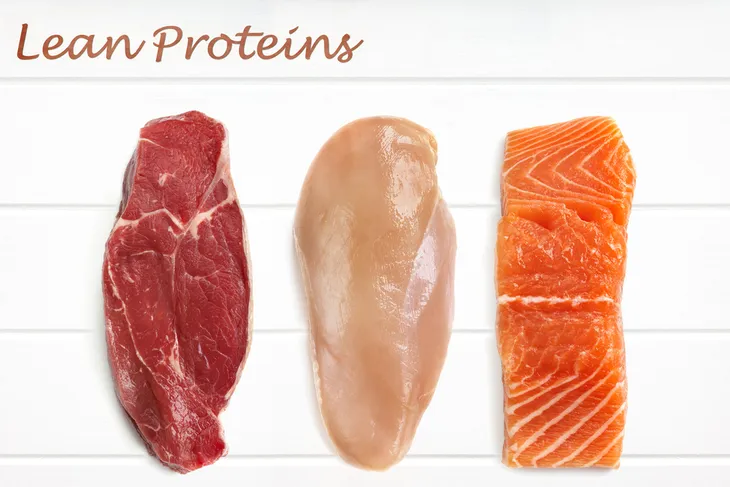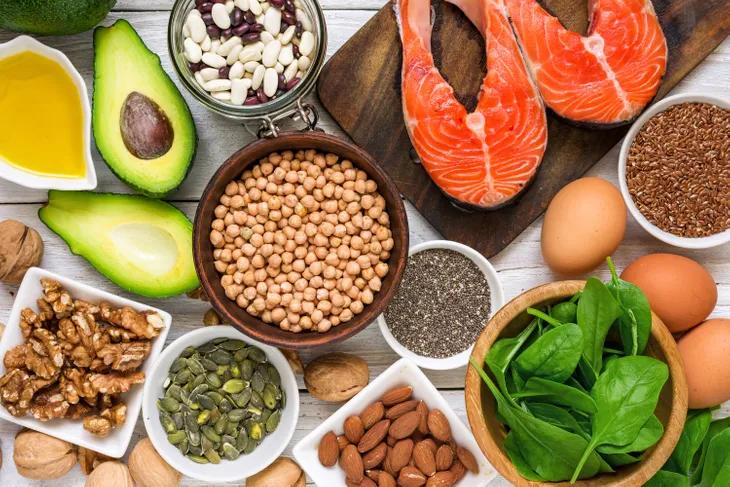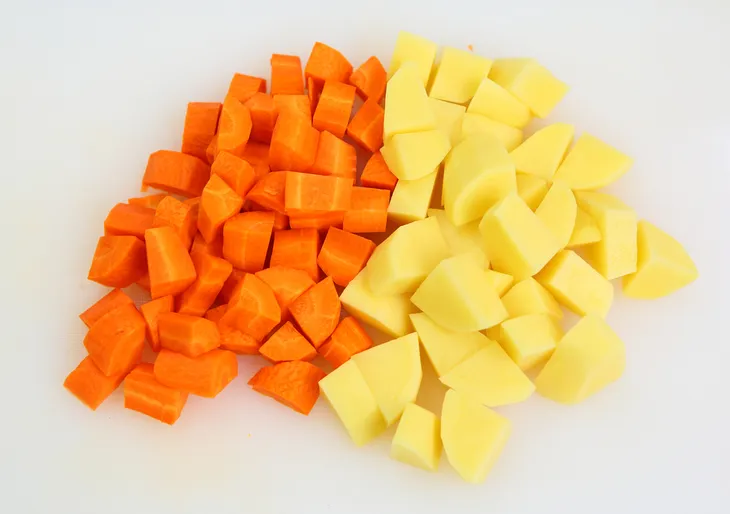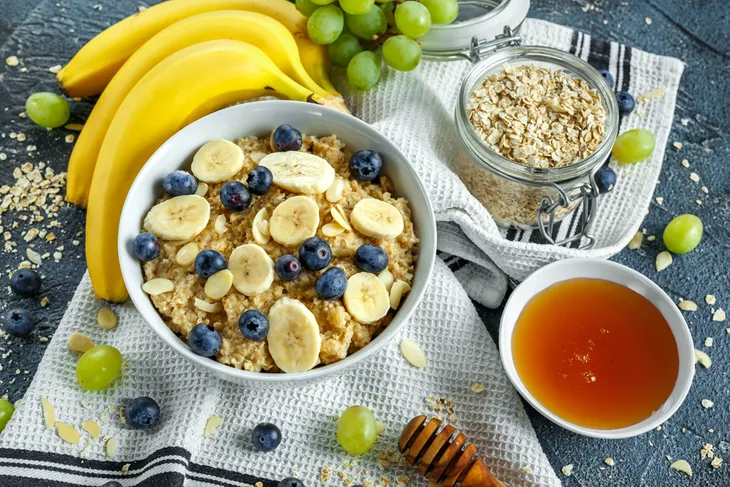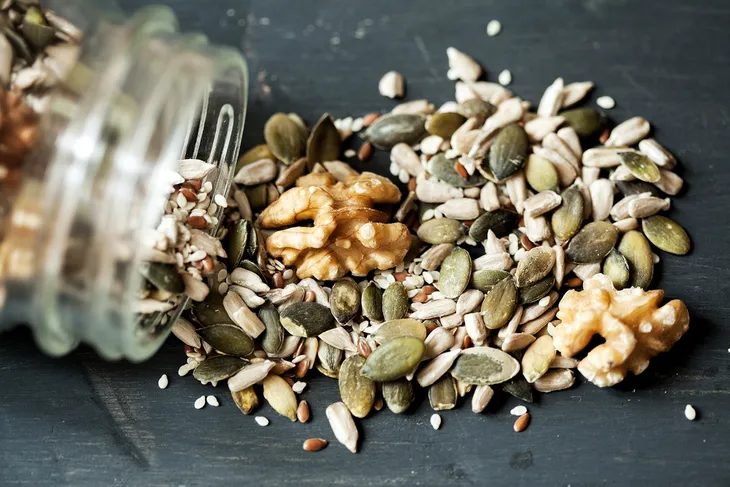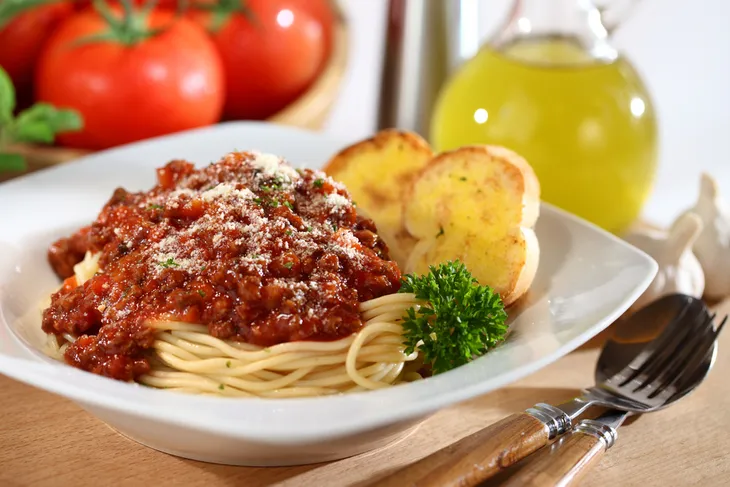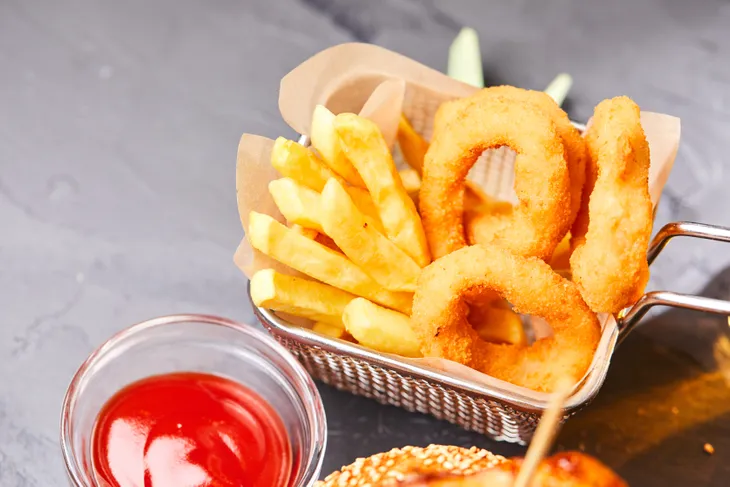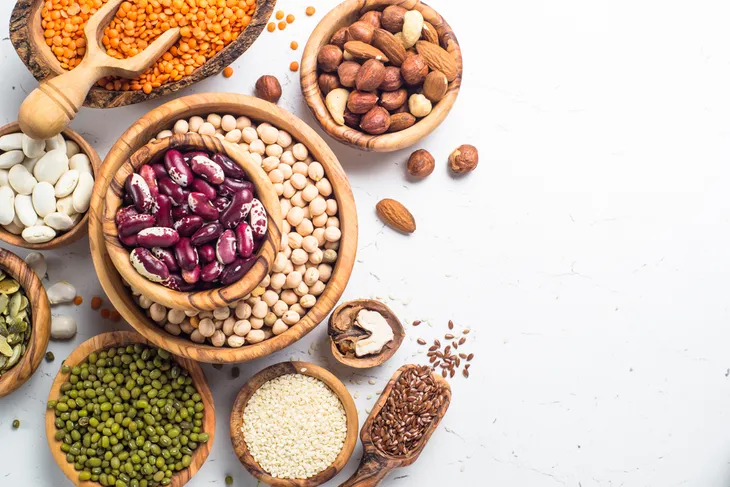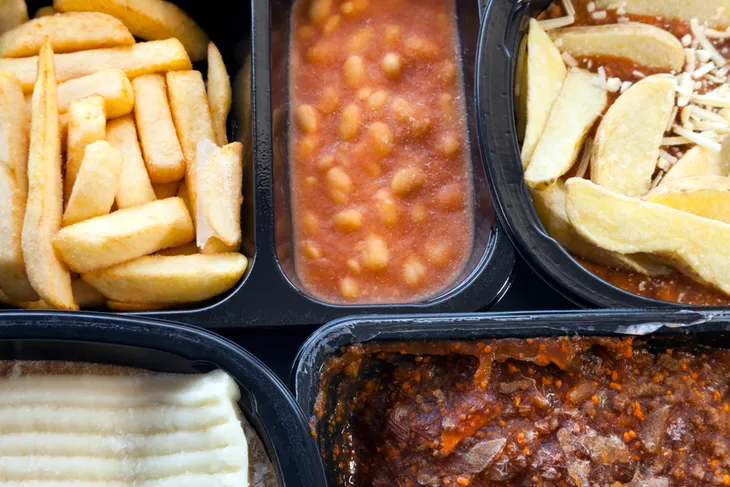Irritable bowel syndrome (IBS) is definitely no walk in the park – unless your walk is to locate a bathroom. This common disorder can have symptoms including diarrhea, bloating, and abdominal pain, says the Mayo Clinic.
Like many conditions, changing your diet will not cure the problem (IBS is a long-term issue), but it can help alleviate some of the symptoms. Let’s take a look at 13 foods to add to your menu, and some others you should remove..
Foods to Eat: Lean Meats
VeryWell Health notes that lean meats are prime for an IBS diet, as they are packed with protein yet easy for your body to process. “Protein is easily digestible and is not fermentable by gut bacteria – which translates to no unwanted intestinal gas,” it adds.
Examples of lean meats include white meat chicken or turkey, pork, or lean cuts of red meat (pork or beef). The source says the standard fatty cuts of meat may contain “pro-inflammatory fats” that won’t do your digestive system any favors.
Foods to Eat: Eggs
VeryWell Health says eggs are a “safe” choice for those with IBS, thanks to the fact they’re easily digested in most cases. Eggs are also a good source of protein and can be enjoyed in a number of ways (hard boiled, poached, scrambled, etc).
However, the source warns that some people can have a sensitivity to egg whites (namely the proteins in them), and some claim the higher fat content in egg yolks can be problematic. It’s probably wise to start with small portions to see how your body handles it.
Foods to Eat: Omega-3s
You’ve probably heard this “omega 3” term thrown around a lot, and while they’re actually fatty acids, they “play an anti-inflammatory role within the body,” according to VeryWell Health.
That’s good news since inflammation is likely worsening your IBS symptoms, it adds. Fish is probably the most popular source of omega-3 acids, with the most popular being wild salmon, mackerel, herring, sardines, and rainbow trout. However, certain nuts and seeds can provide omega-3 content as well (keep reading to find out which ones).
Foods to Eat: Low FODMAP Vegetables
FODMAP is an acronym for carbohydrates that are “fermentable oligo-, di-, monosaccharides and polyols,” explains WebMD. These FODMAPs draw more water into your digestive tract, which can contribute to feelings of being bloated, notes the source. “If you eat too much of them, they can hang around in your gut and ferment,” it adds.
Examples of vegetables in a low-FODMAP diet (not to be confused with a low-carb diet) include carrots, potatoes, and leafy greens (spinach and kale), it offers. WebMD says a study published in the journal Gastroenterology shows about 75-percent of subjects had eased IBS symptoms immediately after starting a low-FODMAP diet.
Foods to Eat: Low FODMAP Fruits
WebMD also notes that some fruits usually considered healthy choices are not so much for IBS sufferers. That’s because fruits fall under the fructose carbohydrates category, which along with lactose, fructans, galactans, and polyols, are ones to avoid as these carbs are FODMAPs.
However, in the site’s list of low-FODMAP foods are bananas, blueberries, grapes, tangerines, and tomatoes (yup, it’s a fruit). At the same time, you should consider ditching your FODMAP-rich fruits such as apples, watermelons, and dried fruits, it adds.
Foods to Eat: Nuts and Seeds
As promised, we said we’d outline the nuts and seeds that are the best to eat if you’re dealing with IBS. VeryWellHealth.com says that nuts are not only rich in fiber and protein, but also omega-3 fatty acids. The low-FODMAP nuts you should focus on include walnuts, almonds, Brazil nuts, hazelnuts, macadamias, pecans, and pine nuts, says the source.
Meanwhile, in the seed category, the best for IBS are chia seeds and flaxseed, especially if constipation is one of your symptoms, according to the source. Both of these seeds offer fiber and omega-3 acids, it adds. Keep in mind that flaxseed needs to be ground before consumption, so you can sprinkle them on salads or oatmeal, or put them in smoothies, suggests the source. Other seeds to consider are pumpkin seeds and sunflower seeds, both low-FODMAP options, it says.
Foods to Avoid: Bread and Pasta
Women’s Health says it’s not the gluten in these foods that’s causing your problems (as many assume), it’s actually the dietary fructans – a type of fermentable sugar – that affects IBS sufferers even more.
It cites a study of individuals who believed they were gluten-sensitive, but turned out to be more sensitive to these fructans than the gluten. Once fructans reach your large intestine, the bacteria churns them into gases and draws more water into the colon that can cause bloating and diarrhea, it adds.
Foods to Avoid: Gluten
That being said, it doesn’t mean gluten isn’t a problem for IBS sufferers. Healthline explains that gluten – an insoluble type of fiber found in grains (such as wheat, rye and barley) – can actually cause your IBS symptoms.
Many people have gluten intolerance (not the same thing as Celiac disease, which is a gluten allergy) that can cause negative side effects. Going gluten-free if you have IBS may improve some of the symptoms, it adds, noting there are many gluten-free options flooding grocery stores.
Foods to Avoid: Dairy
Healthline says dairy products are problematic for IBS sufferers for two reasons: the first is fat, which can increase your chances of experiencing diarrhea. “You may need to switch to low-fat or nonfat dairy to lessen symptoms,” it adds.
The second problem is the lactose content, which many people are intolerant of. So it might be wise to try cutting out dairy for a while to see if lactose is causing your symptoms to flare up.
Foods to Avoid: Fried Stuff
Healthline also warns against consuming French fries and other fried foods, which are unfortunately “a staple in the typical American diet.” However, you don’t have to cut it out altogether; moderation is key, it adds.
With that being said, fried foods have a high fat content that can be harder on your system if you have IBS. “Frying food can actually change the chemical makeup of the food, making it more difficult to digest,” it explains. Try baking or grilling foods as other options, it suggests.
Foods to Avoid: Alcohol
Indulging in “happy hour” too often can actually end up feeding your IBS, explains Women’s Health. That’s because the sugars in liquor can feed gut bacteria that leads to fermentation – enter excess gas and bloating.
“Binging” on alcohol can also harm the “good” gut bacteria that keep everything in balance, it adds. Again, this doesn’t mean you have to swear off booze forever. Just learn how alcohol affects your symptoms and cut yourself off before flare-ups, it adds.
Foods to Avoid: Beans and Legumes
Know how people joke about beans giving you gas, and to avoid eating them before an important meeting? It goes further than that for people with IBS, and can trigger symptoms, says Healthline.
“While beans can increase bulk in stool to help constipation, they also increase gas, bloating, and cramps,” it adds. Meanwhile, examples to avoid include peas, lentils, soybeans, and even peanuts (which are part of the legume family).
Foods to Avoid: Processed Meals
Many foods, both frozen and non-frozen, are processed. But many people don’t consider how these types of foods may affect their IBS symptoms, says Healthline.
The source says these types of foods – which range from potato chips to frozen dinners – contain preservatives that can cause IBS flare-ups, and many processed foods are also fried, meaning they’re high in fat. Buying fresh is usually a better (although sometimes less convenient) option than buying processed meals, it adds.

